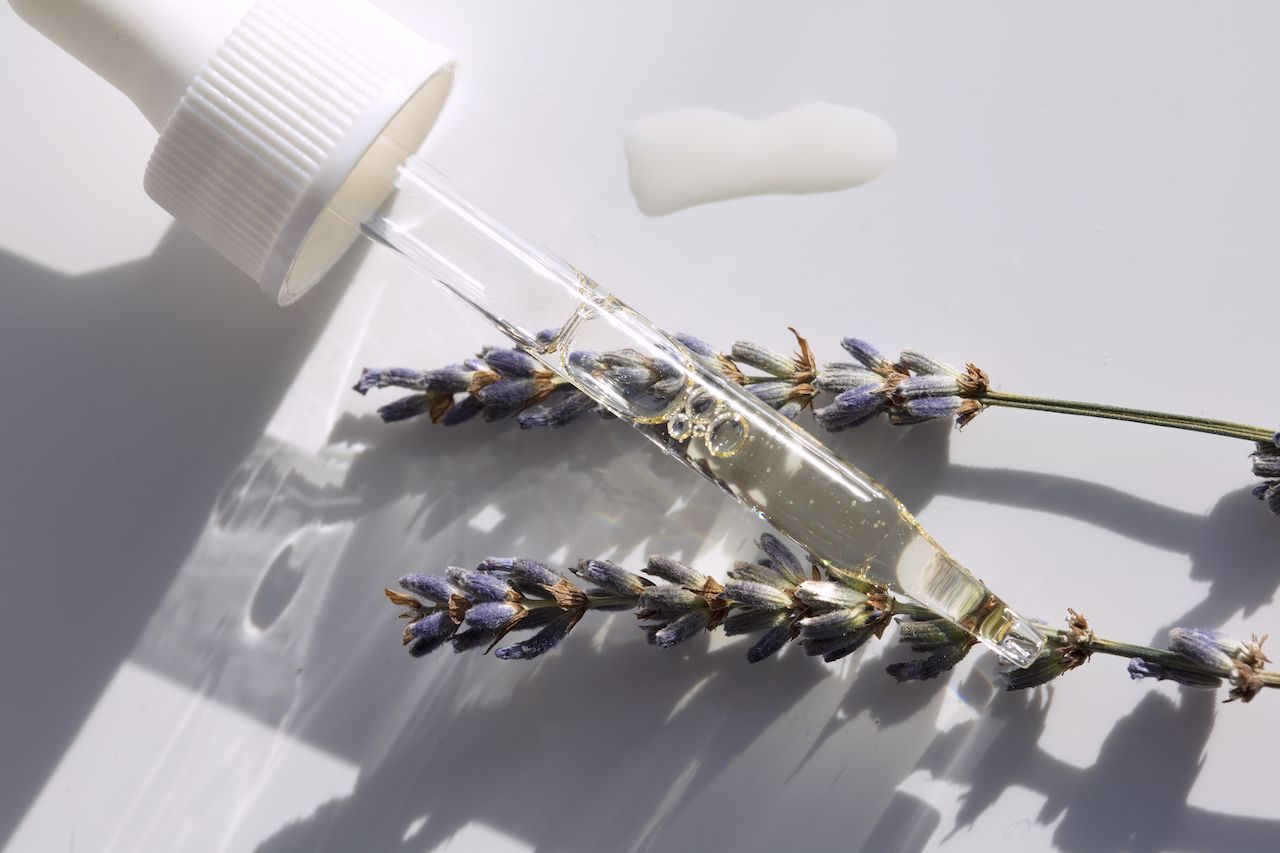Originally from the Mediterranean, Middle East, and India, the lavender flower has gained notoriety worldwide for its near pharmaceutical efficacy. Its antiseptic, antimicrobial, and sedative effects have been observed for over 2,500 years. This dreamy-scented flower has been used in folk medicine for centuries and remains popular to this day for its ability to treat a variety of ailments including anxiety, restlessness, insomnia, and depression.
Meet the Expert
- Isfahan Chambers-Harris is a medical scientist, trichologist, and the founder of Alodia.
- Orit Markowitz, MD, is a board-certified dermatologist, skin cancer expert, and founder of OptiSkin in NYC.
Whether it’s in a candle, bed spray, or diffuser oil, there is no scent more relaxing than lavender. In addition to its therapeutic significance, lavender oil is beginning to attract studies on its ability to aid in wound care and hair loss. Due to previous reports of its transformative growth factor in animal studies, fans of lavender oil are beginning to question whether it may have additional benefits for hair.
Could lavender oil be used in the treatment of hair loss? We asked two hair experts for their take on this commonly used aromatherapy oil. Keep reading to find out.
Lavender Oil for Hair
Type of ingredient: Growth factor, antiseptic, and antimicrobial properties
Main benefits: Eases anxiety, improves overall scalp health, and may stimulate hair growth
Who should use it: In general, all hair types and textures can benefit from lavender oil. Those with thin hair or an unhealthy scalp will benefit most from its healing properties. As with other oils, people with fine hair or an oily scalp may want to use it sparingly.
How often can you use it: If properly diluted, it can be safely used every day.
Works well with: Carrier oils like argan, grapeseed, jojoba, coconut, or almond oils
Don’t use with: There are no known ingredients that interfere with lavender oil, but it has the potential to be an allergen, so monitor for irritation or sensitivity and always patch-test before use.
Benefits of Lavender Oil for Hair
Lavender oil has been used topically, via inhalation, and through oral ingestion to treat issues ranging from anxiety to wound care for thousands of years. Lavender essential oil is believed to have a beneficial effect on wound healing due to previous clinical studies that resulted in reduced pain and redness of incision sites after its application. Additionally, studies in mice have shown that lavender oil may have the ability to stimulate hair growth.
It is also important to point out that the positive psychological effects of lavender oil, which have been observed in several studies, can also influence hair and scalp health. Stress is one of the leading causes of hair loss in both men and women and can be targeted with lavender oil aromatherapy. Further, immune activation and inflammation are strongly associated with anxiety and stress, both of which can lead to poor scalp health and hair loss.
- Eases anxiety and stress: Lavender oil’s use in calming anxiety and stress can be traced back to Roman and Egyptian times, according to Markowitz. Lavender oil treatment has been found to alleviate anxiety-related symptoms such as restlessness and disturbed sleep with few adverse effects. Chambers-Harris warns that it can even have sedative qualities in its concentrated form, so it should be used cautiously.
- May prevent dandruff: Dandruff is typically caused by yeast infecting the scalp. Chambers-Harris points out the antimicrobial properties of lavender oil, which have been observed to aid in the wound healing process. Depending on the cause of a specific case of dandruff, lavender oil may be able to help prevent the formation of flakes.
- Reduces inflammation: Stress and anxiety take an immense physical toll on the body. Biochemical links have been found that associate immune activation and inflammation and mood disorders, such as anxiety, restlessness, insomnia, and depression. In treating these ailments, lavender oil can reduce inflammation in the body and specifically the scalp.
- May stimulate hair growth: While both experts caution that more human clinical trials are needed to confirm the results of the mice studies, lavender oil has been found to promote new hair growth at a rate similar to the active ingredient in Minoxidil.
- Improves overall scalp health: By providing both anti-inflammatory and antimicrobial properties to the scalp, lavender oil improves overall scalp health. A healthy scalp is essential to new hair growth, so this may also aid in promoting hair growth.
Hair Type Considerations
Our experts agree that lavender oil can be used across all different hair types and textures. Its benefits will be most appreciated by those experiencing hair loss or thinning. But both of our experts caution that more research is needed to conclusively understand the relationship between lavender oil and hair growth/loss. As with other oils, people with fine hair or an oily scalp may want to use it sparingly. It is important to consult a doctor if you are experiencing hair loss, as it can be caused by hormonal imbalances or other health concerns.
How to Use Lavender Oil for Hair
:max_bytes(150000):strip_icc()/AlodiaDeepConditionMasqueFront2_2000x-2b5bf83ed6a3421cb0ccba0db86ff34e.jpeg)
:max_bytes(150000):strip_icc()/AlodiaDeepConditionMasqueFront2_2000x-2b5bf83ed6a3421cb0ccba0db86ff34e.jpeg)
Alodia
Nourish & Hydrate Deep Conditioning Masque
$18.00
Lavender oil can be used to improve your scalp and hair topically, via inhalation, or through oral ingestion, depending on how you are hoping to benefit from its healing properties. Aromatherapy or inhalation of lavender oil is commonly recommended for those looking to target anxiety and stress, which can have a great influence over the hair and scalp. Oral ingestion of oils such as lavender oil should never be done without the consultation of a medical professional. And those who are allergic to the lavender flower should not use lavender oil due to the potential for irritation.
- Add drops of lavender oil to your shampoo: To avoid irritation, Chambers-Harris says lavender oil can be added to your favorite shampoo. Add two to three drops of lavender oil to your palm and mix with your normal amount of shampoo. Leave on for five minutes, then rinse thoroughly.
- Create a massage oil for your scalp: Chambers-Harris recommends mixing two to three drops of lavender oil with one ounce of your favorite carrier oil, such as argan, grapeseed, jojoba, coconut, or almond oils, to prevent irritation. The act of massaging the scalp also increases blood flow, which can benefit hair growth.
- Use products with lavender oil: Chambers-Harris says that almost all of the products in her Alodia line have lavender oil, but her favorite product containing lavender is the Deep Conditioning Masque. By using a preformulated product, you reduce the chance of creating too high of a concentration.
Not Just for Sleep: Here’s How Lavender Oil Can Soothe and Heal Your Skin










